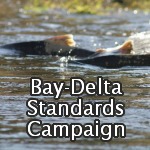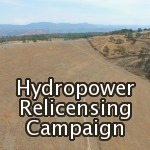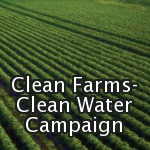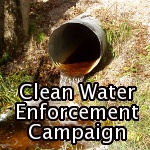On 19 May 2011, CSPA settled a Clean Water Act lawsuit against North State Rendering, Co., Inc. regarding serious violations of the California General Industrial Stormwater Permit. North State Rendering operates a 28-acre rendering facility in Oroville California that manufactures tallow, grease and other animal by-products to make soap, candles and pet and livestock feed. The Facility collects and discharges stormwater to an unnamed tributary to Gold Run, which flows into Dry Creek and ultimately to the Sacramento-San Joaquin Delta.
A 60-day notice letter of intent to sue was sent on 8 April 2010 and a lawsuit was filed in federal court 10 June 2010. The lawsuit alleged that the facility illegally discharged excessive concentrations of pollutants in violation of their stormwater permit and the Clean Water Act. North State Rendering also failed to develop, implement and update: 1) Best Available and Best Conventional Treatment Technologies; 2) an adequate Stormwater Pollution Prevention Plan (SWPPP); and 3) an adequate monitoring and reporting plan. It also accused the operators of falsely certifying compliance in their annual reports.
The Settlement Agreement has been submitted to the court as an enforceable Consent Decree and to the U.S. Department of Justice for review. It obligates North State Rendering to: 1) comply fully with the applicable requirements of the General Permit and Clean Water Act; 2) implement a suite of Best Management and Housekeeping Practices; 3) develop and implement a number of structural improvements; 4) conduct more frequent, comprehensive monitoring during rain events, and 5) prepare an adequate SWPPP. The agreement incorporates “Meet & Confer” provisions that allow CSPA to return to court for enforcement if pollutant benchmarks continue to be exceeded and the parties cannot agree on additional measures to be implemented.
Jackson & Tuerck and the Law Offices of Andrew Packard represented CSPA in this matter. Consent Agreement









